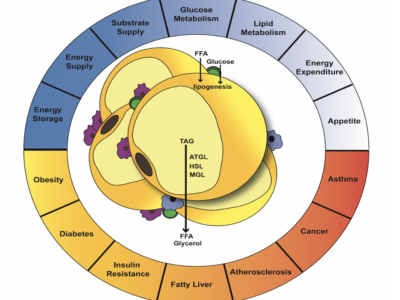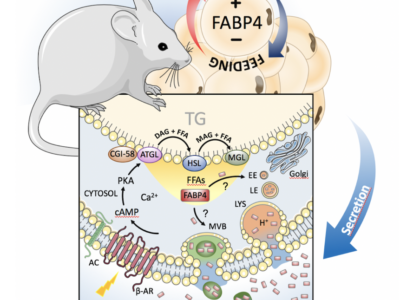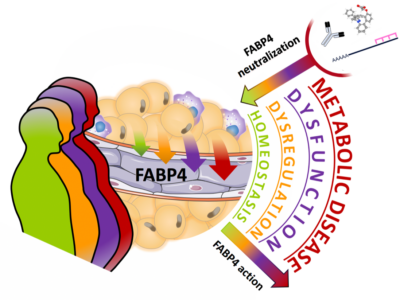Lipid chaperones, called fatty acid binding proteins (FABPs), are critical molecules integrating lipid signals under metabolic stress conditions. FABPs bind to lipids and other endogenous molecules, determining their composition, partitioning, and function in cells. FABP4, also known as aP2, is an essential molecule that integrates adipocyte biology with systemic metabolic regulation. The Hotamışlıgil Lab is interested specifically in the mechanisms by which FABP4 acts as a hormone, as well as how it is secreted.
Biologically Active Lipids
Benefiting from technological platforms, including lipidomics, bioinformatics and novel physiological systems, we have identified a unique fatty-acid, C16:1n7-palmitoleate, as a major signaling lipid hormone that controls metabolic activity in liver and muscle.
Lipid Chaperones and Escort Proteins
FABP4, also known as aP2, is an essential molecule for integration of adipocyte biology with systemic metabolic regulation. We are interested in the hormonal actions and secretory capacities of these robust binding proteins.
Therapeutic Perspectives
Obesity has been recognized as a risk factor for asthma and atherosclerosis. aP2-deficient mice show resistance to airway inflammation as well as atherosclerosis, raising the possibility that treating this molecule as a therapeutic target will be beneficial for distinct chronic diseases.



